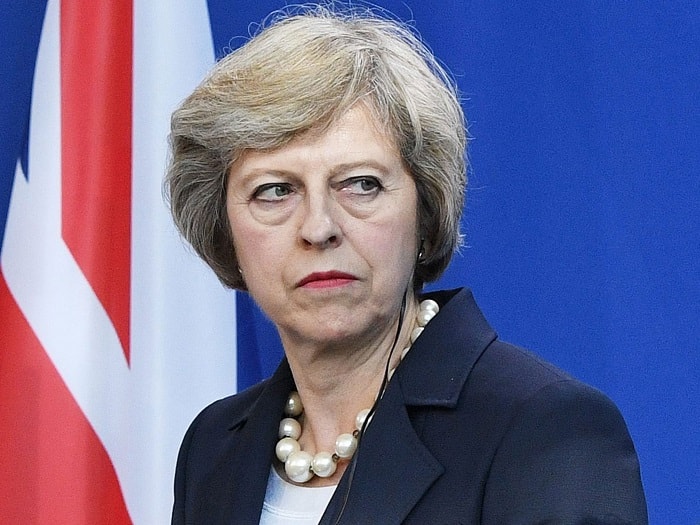Top Story
UK Parliament Rejects May’s Brexit-EU Deal In 432-202 Vote

British Prime Minister Theresa May suffered a crushing defeat Tuesday as Parliament overwhelmingly rejected her Brexit deal with the European Union a defeat that places the future of Brexit in doubt and is likely to spark calls for May’s ouster via a general election.
According to Fox News, May’s withdrawal agreement was voted down 432-202, the largest for a prime minister in the history of the House of Commons. May was expected to lose, but the extent to which she lost was significant and marks a devastating blow for her leadership and her ability to go back to Brussels and negotiate further concessions.
Labour Party leader Jeremy Corbyn immediately tabled a motion of no-confidence in the government, which is likely to be debated on Wednesday. Should that pass, it could eventually lead to a snap general election if another government is not formed within two weeks.
Theresa May sets date for Brexit deal MPs’ vote
What happens next is unclear. Britain is scheduled to leave the bloc at the end of March, currently with no deal something that many MPs on both sides of Parliament, including May, have said would lead to significant disruption. Some MPs, particularly those who voted to remain in the E.U. in 2016, have called for Britain to delay its departure or hold a second referendum.
“Her tactic of denial and delay has reached the end of the line,” Corbyn told the Commons after the vote.
May is also likely to face significant pressure from her Conservative Party to step aside, particularly considering the margin of her defeat, which would normally lead to a prime minister’s resignation. But May, having survived a vote of no-confidence from her party in December, is protected from being ousted from her own party until December 2019.
May has faced criticism from both Remainers and “Brexiteers” over her handling of the deal. The anger from the “Brexiteer” wing focuses primarily on the inclusion of a “backstop” — a safety net that keeps Britain in a customs union with the E.U. in case no trade deal is made after March. It is intended to avoid a hard border between Ireland and Northern Ireland, but Brexiteers have pointed to the lack of a unilateral exit mechanism as evidence that the backstop will lead to Britain never actually leaving.
“I’ll be voting against the withdrawal agreement because I don’t believe it delivers Brexit,” Conservative MP and top Brexiteer Jacob Rees-Mogg said on the BBC Tuesday.
Ahead of the vote, May and her allies launched a pushback against withering criticism of her handling of negotations, and of the deal. Warning about the dangers to Brexit and to the country of voting down May’s deal, Attorney General Geoffrey Cox asked: “Do we opt for order or do we choose chaos?’
To his own party, particularly the Brexit wing, he turned to the Tory benches and asked: “What are you playing at? What are you doing?”
A defeat also makes not only May’s future unclear, but also Brexit’s. Britain is now set to leave without a deal with the E.U., something that Remainers and some business groups have said would lead to chaos from an economic downturn to a lack of access to vital medicines as Britain’s ports clog up.
Those on the right of the Tory Party have downplayed the risks of no deal, noting that Britain would revert to normal World Trade Organization terms and the benefits of leaving the E.U. would outweigh any difficulties.
“Cutting the costs of imports from outside the E.U., making our economy more competitive, is going to be extremely beneficial,” Jacob Rees Mogg told the BBC. “All the gloomsters, the prophets of doom, are the people who prophesied doom before and they’ve been wrong in all their earlier forecasts.”











